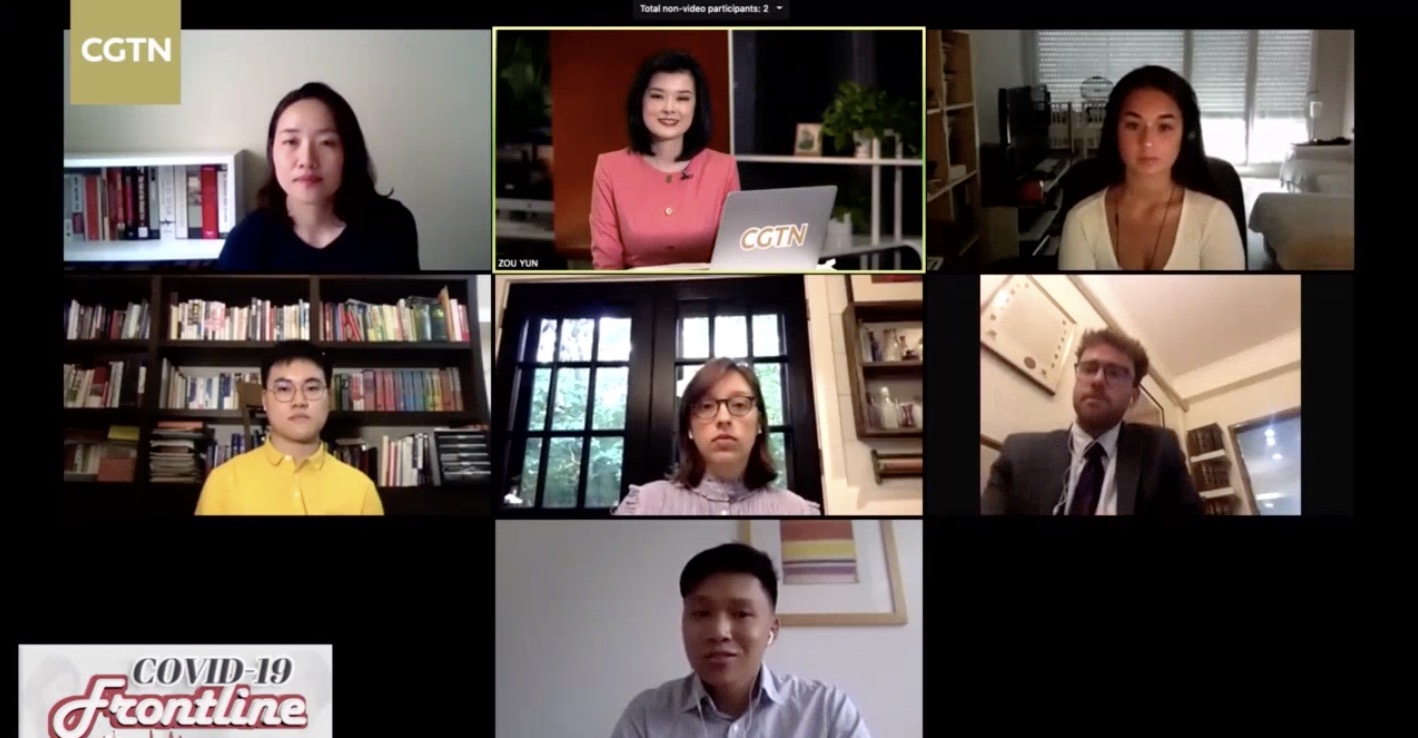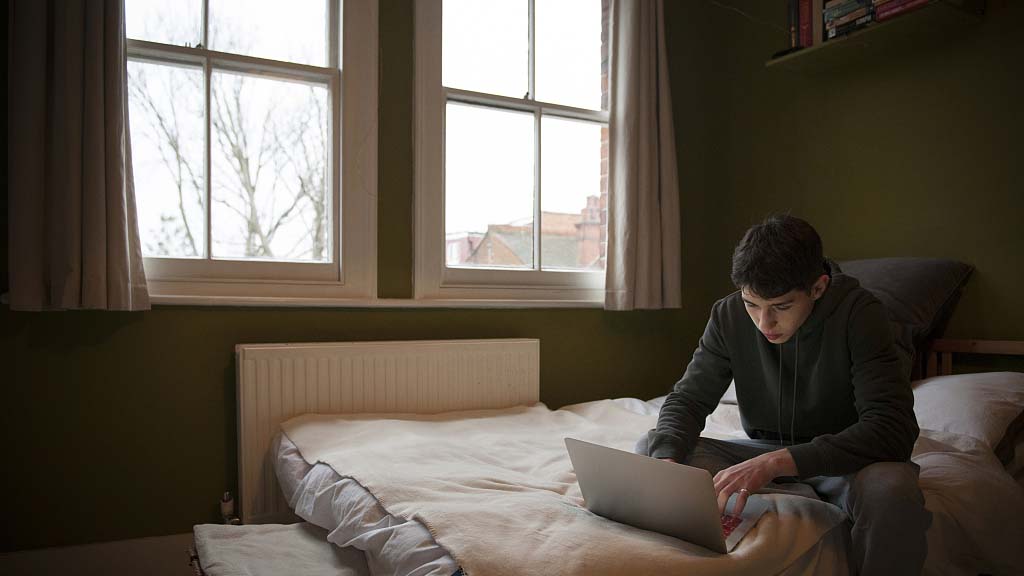Editor's note: On March 12, 2020, the World Health Organization (WHO) declared COVID-19 a pandemic, and as of Friday (August 7), about 200 countries and regions have confirmed over 18,614,000 cases, according to the WHO. On CGTN's live program "COVID-19 Frontline," we invited people from China and other parts of the world to share their experiences and take questions from social media in the hope of providing more information for those who are battling the pandemic.

In the latest episode of CGTN's live stream program "COVID-19 Frontline" on Thursday, August 6th, we invited students from the UK, France, the U.S., Thailand, and China to share their experience of studying and living amid the pandemic and how they are coping with changes and adjusting their lifestyles.
Students around the world have been affected by the COVID-19 pandemic. They have encountered problems such as not being able to go to school and difficulties in finding jobs.
Live: How are students around the world studying and living amid a pandemic?

"COVID-19 Frontline" held on Thursday. /CGTN
"COVID-19 Frontline" held on Thursday. /CGTN
What impact and changes have the pandemic brought to the study and life of students?
Ava Lolan-Banks, an incoming senior student at University Lake School in Delafield, the United States, said that to some extent it's easier to apply for university during the pandemic. For example, ACT and SAT test scores are optional as a requirement now. So some schools focus more on students' past experiences. But due to the pandemic, students can't visit schools and may not know much about those on offer. Some schools also can't give students a better learning experience because of the elimination of after-school programs due to lack of funding.
Jimena Carballo, a French high school senior student, said she'll study management and marketing on a two-year program called BTS in France while also working, but it's harder to find a job due to the pandemic.
Natthaphon Tripornchaisak, a PhD student at the University of Glasgow in Scotland, said that as an independent researcher, he can finish his paper physically anywhere, but he has also had to rely solely on online journals since the library has been closed for about four months. His data collection plan has been disrupted as well. He initially planned to travel back to Thailand to interview people, but due to the pandemic, he has had to do so online.
03:35

About e-learning
Jimena Carballo said it's very difficult for her to concentrate when studying online. Tripornchaisak added that the bright side of e-learning is that students don't need to waste time on transportation. But he noted that sometimes speakers just talk to themselves without much interaction, making it difficult for students to concentrate.
01:26

Challenges posed by job hunting
Yang Chenyue, a Chinese student studying at the Jackson Institute for Global Affairs at Yale University, said most international students plan to work in the United States after graduating but they need to find a job within 90 days. But many of her classmates could not find one due to the pandemic, so their visas expired.
Tripornchaisak said it's very hard to find a job as the pandemic is unprecedented. He is happy that he is doing a PhD now and his funding has been granted for four years. But for most graduates, it's a very difficult time.
How to deal with anxiety and stress
Tripornchaisak said many international students are talking to their families more often during the pandemic. The crisis has brought people closer in some ways. He said his life perspective has also changed and he has found joys in daily living such as going out for a walk. He mentioned he even looked forward to going to a grocery store. Maybe people will appreciate their lives more when the pandemic is over, he said.
In later episodes of "COVID-19 Frontline," more people will join in to share their experiences during the pandemic. If you have any questions regarding COVID-19, you can share with us using #MyOpinionOnCOVID19 on Facebook.
Videos by Zeng Hongen
Cover image by Qu Bo